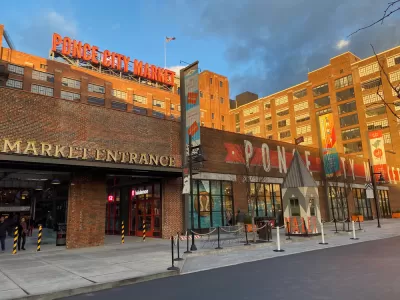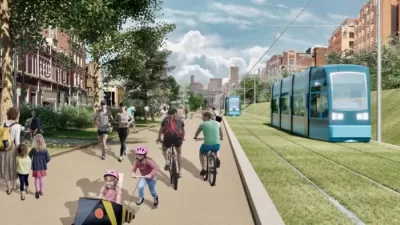A financial plan to get the Atlanta Beltline across the finish line.

"The Atlanta Beltline is asking for a slight tax increase on businesses and apartment complexes around the multiuse path to help finance the final years of the Beltline’s construction," reports J.D. Capelouto.
Atlanta City Councilmember Dustin Hillis introduced three ordinances that would create a "Special Service District" around the Beltline that would implement a property tax on multi-family and commercial properties along the Beltline, according to Capelouto. The special taxing district would be expected to generate in $100 million in tax revenue over the next ten years.
"Under the proposal, commercial and multifamily property owners would see an uptick in their annual property taxes — a property appraised at $1 million would pay an additional $800 per year, for example. Owner-occupied homes, condos or townhomes would not be subject to the tax increase," reports Capelouto.
The money would go toward bond financing for construction on final pieces of the complete 22-mile loop. "The agency estimates it would also be able to spend an additional $50 million on affordable housing, create 20,000 additional jobs, put $7 million toward support for small businesses and allocate up to $150 million of construction funding to minority-owned contractors," reports Capelouto.
An existing Tax Allocation District for the Beltline is falling short of projections for revenue generation, according to the article. Hence the need for a new tax district.
FULL STORY: Beltline proposes tax increase for businesses to fund final path construction

Planetizen Federal Action Tracker
A weekly monitor of how Trump’s orders and actions are impacting planners and planning in America.

Maui's Vacation Rental Debate Turns Ugly
Verbal attacks, misinformation campaigns and fistfights plague a high-stakes debate to convert thousands of vacation rentals into long-term housing.

San Francisco Suspends Traffic Calming Amidst Record Deaths
Citing “a challenging fiscal landscape,” the city will cease the program on the heels of 42 traffic deaths, including 24 pedestrians.

Amtrak Rolls Out New Orleans to Alabama “Mardi Gras” Train
The new service will operate morning and evening departures between Mobile and New Orleans.

The Subversive Car-Free Guide to Trump's Great American Road Trip
Car-free ways to access Chicagoland’s best tourist attractions.

San Antonio and Austin are Fusing Into one Massive Megaregion
The region spanning the two central Texas cities is growing fast, posing challenges for local infrastructure and water supplies.
Urban Design for Planners 1: Software Tools
This six-course series explores essential urban design concepts using open source software and equips planners with the tools they need to participate fully in the urban design process.
Planning for Universal Design
Learn the tools for implementing Universal Design in planning regulations.
Heyer Gruel & Associates PA
JM Goldson LLC
Custer County Colorado
City of Camden Redevelopment Agency
City of Astoria
Transportation Research & Education Center (TREC) at Portland State University
Jefferson Parish Government
Camden Redevelopment Agency
City of Claremont




























